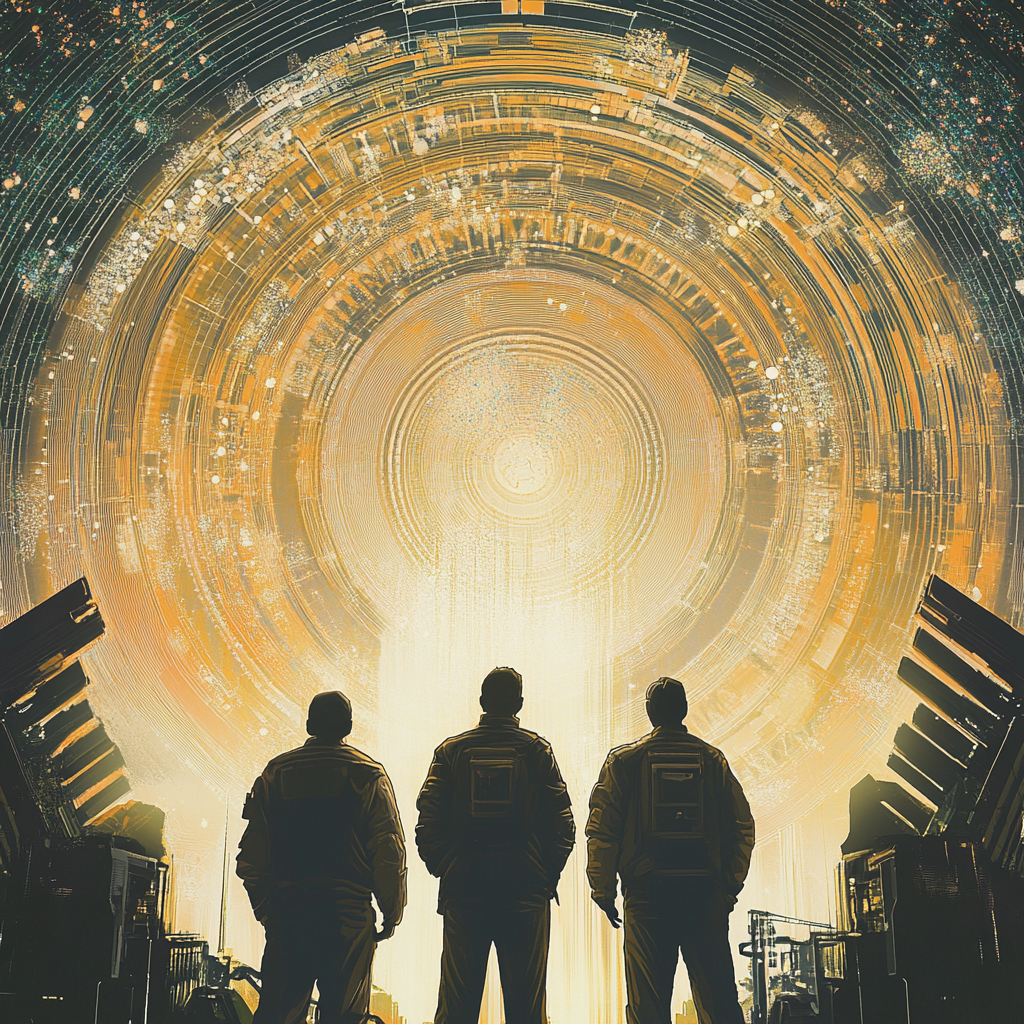
I often doubt the value I bring to a conversation about books. Yes, I have a Masters in Librarianship and worked in libraries starting in my teenage years. Yet, I know, that's irrelevant. The only metric I think fair is whether the author achieved what they intended.

I bought The Three Body Problem (2008) by Liu Cixin on Kindle years ago and did not even crack it open. I assumed the story would orbit some nuance of living in a three star system.
Neat idea, but not exciting.
Instead, I waited for the Netflix adaptation. Life is short and I've been dedicated to reading indie authors.
Below you will find all my reasons why I liked Liu Cixin's book, but if you want the short explanation: I am a nerd and I think nerds will appreciate it.
Multiple Scientific Concepts
It's usually one. A lot of excellent science fiction that goes mainstream hinges on one concept or one historical event affected by an emerging technology. It's about time travel. It's aliens. It's the multiverse. It's non human intelligence from higher dimensions. It's a bomb. It's one, not all.
The Three Body Problem weaves nanotechnology, the Wow! signal, interdimensional computers, cryogenics, solarwind sails, and much more.
The density of the science delighted me.
The Characters Were Not Reemed By Their Ideology
The environmental conservationists were not infallible martyrs. They were the fools who invited the danger. The military committed horric war crimes in response, but only while everyone was under threat of complete annihilation.
The physicists remained religiously devoted to science despite their need for meaning in their own lives. I loved the characters, but they persisted with their vapid melancholic lives despite direct experience with a civilization that operates in higher dimensions. They lacked a sense of wonder, preferring to see purpose in their fragile human bonds.
Too often, twentieth century authors made heroes out of flawed, selfish characters who were "reemed" by having the right ideology. Mostly, the Three Body Problem just delivered the story. I appreciated that.
Materialism Wasn't Sacrosanct
Most science fiction disappoints me, because I'm obsessed with the philosophical continuum between materialism, where everything is matter, and idealism, where everything is mind.
Liu Cixin is a bit epiphenomenalist. Basically, the story clings to materiaism while standing over the edge peering down at idealism, but it doesn't jump. The narrative operates strictly within this materialist worldview, but Liu Cixin adds elements that push the reader, or viewer, to consider a dualistic perspective such as epiphenomenalism, where both the mind and material world exist—though the mind does not influence the material.
This tension is evident in the role of the sophons, subatomic particles manipulated by the alien race to observe and obstruct human scientific progress. Their near-omniscience and ability to collapse dimensions feel almost supernatural.
And I need science fiction that blurs the line between the supernatural and the boring predictable natural world, because that's where we find the next great questions. It's where wonder arises.
